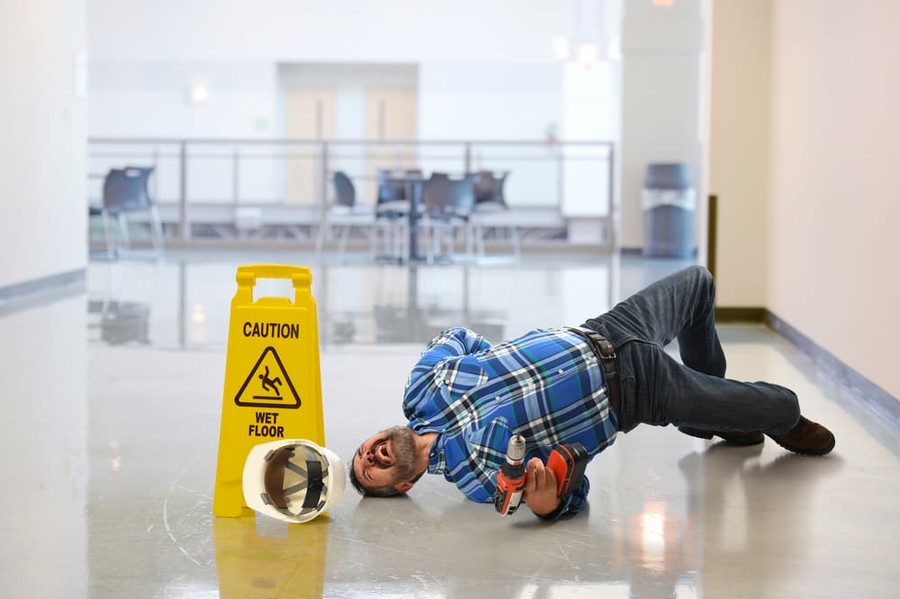Slip and fall liability in Florida is rarely the result of a single mistake. Instead, it stems from a series of preventable operational failures that accumulate over time. While many businesses invest heavily in branding, merchandising, and customer experience, safety operations often remain underdeveloped, poorly monitored, or inconsistently applied. These gaps expose customers to danger and businesses to significant legal risk under Florida premises liability law. Law firms such as Chalik and Chalik, which represent injured individuals exclusively, frequently uncover operational breakdowns that reveal why slip and fall injuries occur and how they could have been avoided.
This briefing examines the operational shortcomings most commonly identified in Florida slip and fall claims, beginning with inspection management. Many businesses implement inspection routines that appear thorough on paper but lack real-world execution. Employees may sign off on inspections without physically checking high-risk areas, leading to long periods where hazards remain undetected. Inspection logs may show unrealistic consistency, suggesting a compliance-driven process rather than an effective safety strategy. This discrepancy between documented procedure and actual behavior becomes a critical point of liability, particularly in cases involving major Florida retailers, including those detailed in Walmart slip and fall claims.
Another operational failure involves environmental hazard anticipation. Florida’s climate creates predictable slip and fall risks, particularly in entryways, freezer aisles, produce departments, and areas prone to heavy moisture. Many businesses fail to adjust inspection frequency or staffing levels during periods of rain or humidity. Moisture tracked in from storms can accumulate rapidly, yet without responsive operational planning, visitors are left exposed to unnecessary danger. Proactive hazard anticipation requires real-time adjustments, but many businesses rely on static policies that do not reflect environmental realities.
Flooring selection and maintenance also represent significant operational blind spots. Businesses often prioritize aesthetics or cost over slip resistance, choosing surfaces that become dangerously slick when wet. Without ongoing traction testing or regular review of floor conditions, risk increases over time. Certain materials require specialized cleaning methods, yet improper cleaning products can reduce friction and create a hazardous surface. Failure to integrate flooring maintenance into the broader safety strategy contributes to long-term liability.
Training and workforce readiness represent another critical operational issue. Many employees receive only brief orientations rather than comprehensive training on hazard identification, moisture management, and effective safety communication. High-turnover environments, common in Florida retail and hospitality industries, amplify this problem. When staff are not trained to recognize recurring hazards or are overwhelmed with competing responsibilities, safety protocols fail. In produce aisles, for example, recurring misting cycles create predictable moisture patterns. These patterns are frequently analyzed in Publix slip and fall litigation, where recurring environmental hazards highlight deficiencies in operational oversight.
Communication failures further compound risk. Businesses often rely on warning signs placed reactively rather than strategically. Signs may be positioned too far from hazards, positioned incorrectly, or deployed inconsistently. Effective communication requires anticipating customer pathways and ensuring visibility, yet operational teams frequently treat warnings as an afterthought. Additionally, communication breakdowns between departments—such as maintenance crews and front-end staff—delay hazard response and increase the likelihood of accidents.
Operational culture plays a significant role as well. When management emphasizes speed, sales volume, and efficiency above safety, employees feel pressured to prioritize customer service or stocking tasks over hazard monitoring. This cultural imbalance leads to gaps in inspection routines, slower responses to spills, and inconsistent adherence to safety protocols. A strong safety culture requires leadership commitment, reinforcement, and accountability—elements that are often lacking in busy retail environments.
Incident response procedures also reveal systemic operational weaknesses. After a fall, employees may complete vague or incomplete reports, omit key details, or fail to preserve evidence. Surveillance footage may be overwritten if preservation requests are not acted upon quickly. These documentation issues are not merely administrative errors; they reflect operational disorganization that undermines the business’s ability to defend itself and protect customers. Courts often view poor documentation as a sign of broader negligence rather than isolated mistakes.
Insufficient resource allocation contributes further to liability. High-risk areas require constant monitoring, yet many businesses do not assign dedicated staff to oversee them. Spill stations, absorbent materials, and signage may be limited or poorly maintained. Without dedicated operational resources, even well-designed safety policies cannot be executed effectively. Businesses that attempt to manage safety on minimal staffing and supplies inevitably face preventable slip and fall incidents.
Ultimately, slip and fall liability in Florida reflects the cumulative impact of operational failures rather than isolated oversights. When businesses fail to integrate inspection management, environmental awareness, employee training, communication protocols, documentation, and resource allocation into a coordinated safety strategy, customers suffer injuries that could have been prevented. Through detailed operational analysis, attorneys at Chalik and Chalik reveal these systemic failures and pursue accountability on behalf of injured individuals. Effective safety operations are not optional—they are essential to protecting customers and reducing legal exposure under Florida law.



